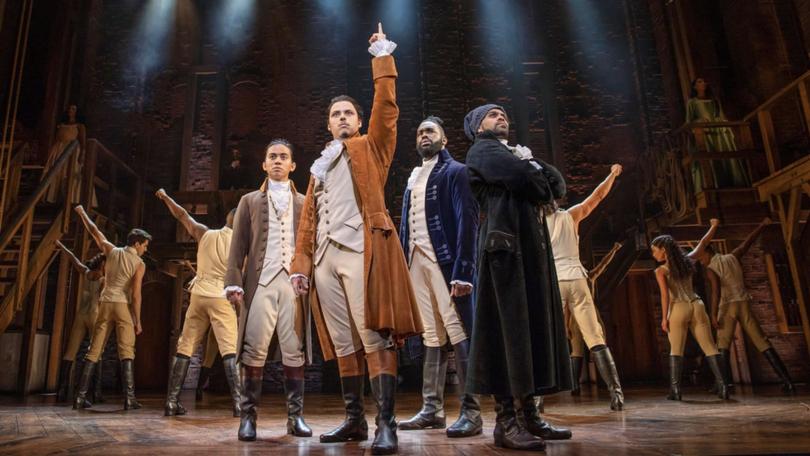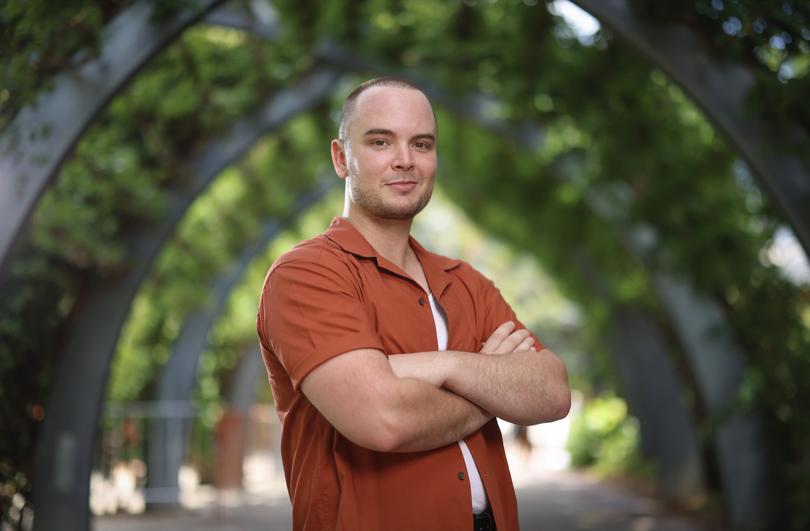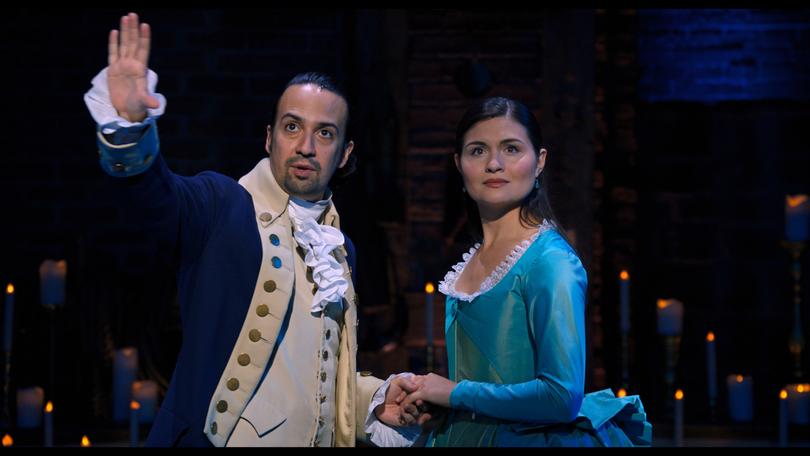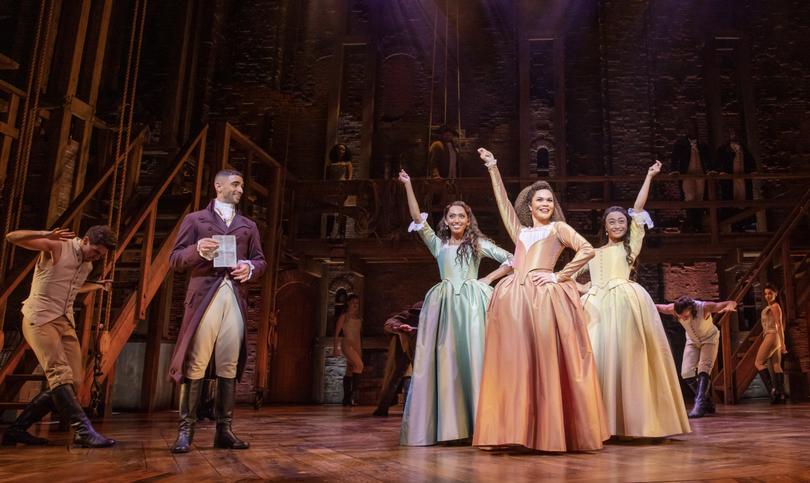Hamilton Sydney 2024: Callan Purcell wants people to understand villain Aaron Burr
Aaron Burr was jealous, petty and vengeful. His greatest crime was to kill Alexander Hamilton in a duel. But is he the more relatable of the two?

Even Alexander Hamilton would agree he needs to chill out.
The character in Lin-Manuel Miranda’s theatre sensation is a man in a hurry. It’s even the subject of the production’s celebrated songs. The lyrics go, “Why do you write like you’re running out of time, write day and night like you’re running out of time, every day you fight like you’re running out of time?”
A polymath and an autodidact, Hamilton excelled at everything, except maybe at being a good husband and father, but he is one of those characters who was the paragon of things - writer, statesman, politician and strategist. The shadow he cast was long.
Sign up to The Nightly's newsletters.
Get the first look at the digital newspaper, curated daily stories and breaking headlines delivered to your inbox.
By continuing you agree to our Terms and Privacy Policy.Aaron Burr? Well, Burr is the man who killed Hamilton.
The story of Hamilton and Burr has echoed through the centuries, ever since the ill-fated 1804 duel in New Jersey which saw one of America’s founding fathers dispatched. But the tale has taken on another life since Miranda’s musical hit the stage in 2015.
But is Burr misunderstood? “Burr is much closer to the experience of a guy trying to make his way, to make his parents proud and just trying to get out of this life without f**king things up,” Callan Purcell says.

Purcell is taking on the role of Burr in the 2024 Sydney revival of Miranda’s play, a production renowned for its inventive genre smash-up of musical styles and a story coursing with the energy, ambition and hubris of its characters. He was a standby during the first Sydney and Melbourne runs and took over Burr from Lyndon Watts in Brisbane.
He says he’s drawn to the antagonist’s ugliness. “His flaws as a human being,” Purcell explains. “Those moments when he’s set back, the moments when he’s embarrassed or betrayed by others around him, I find it fascinating because it may justify or give insight to why he did what he did,
“I’m not here for people to like Burr but I am here for people to understand him. He does something unforgivable – to kill a best friend is such a tragedy.
“But I want people, young and old, to see themselves in Burr and be like, ohmigod, he’s the reject and the outcast. He’s not just the fallen one because he’s always on the cusp, he’s both the novice and the master.”
Purcell’s portrait of Burr speaks to the complexity of a character riven by jealousy, capable of tenderness and overcome with regret. He is more antagonist than villain. Burr may do the awful things but his failures make him more relatable than Hamilton, who, despite his flaws, is almost too exalted to be in reach.
The Australian production of Hamilton opened three years ago in Sydney before covid lockdowns cut that initial season short. It then set up shop in Melbourne and Brisbane and returns to the harbour city in July.
Its cast of culturally diverse performers has been a hallmark of productions worldwide and the original Broadway production supercharged the careers of its ensemble including Miranda, Leslie Odom Jr, Renee Elise Goldsberry and Phillipa Soo.

That commitment to tell the origin story of America with marginalised voices is part of Hamilton’s DNA. It was always a radical rethink, and political at its heart. It opened in New York City in 2015, in a pre-Trump America and quickly gained influential fans including President Barack Obama.
Hamilton is about revolution and youth, optimism and faith, and it has come to represent the belief in a better world. In the time since Hamilton opened, some would argue that things have become thornier.
Purcell, a Wiradjuri man, argues Hamilton’s spirit is still strong, and has a different resonance in 2024 Australia than it did in 2015 America. The social context behind Hamilton still exists, it’s just shifted.
“There are rumblings, conversations and awareness around days such as Invasion Day or the weekly marches and protests for those in Palestine.
“There is more of this awareness of people wanting to make change on a global scale, on this land and soil. People showing up to marches and rallies, whether they agree with it or not, is a testament that people are engaging in social and political activity.
“With a show like Hamilton, I’ve always thought it was a wake-up call for the mob to understand there are those colonialist themes in the show. We see Hamilton stepping up and taking land off the British. Even in the casting with people from historically marginalised backgrounds taking up space.
“It’s a wake-up call for people to take control and agency of their lives and what is happening in their community, whatever their background is.”

Purcell, who will turn 30 before he steps on stage as Burr again, understands the bond between the story unfolding in a theatre and the audience it’s directly speaking to.
As a baby-faced 21-year-old about to move from Newcastle in NSW to London for the Royal Central School of Speech and Drama, he posted a YouTube video, set to a Noah and the Whale song, expounding on what it is about performing that makes him tick.
“It’s about connecting with people through storytelling and hoping that they leave the theatre feeling a little less alone in a world of apathy,” he says today.
“In a world of social media, where you feel quite lonely, I love telling stories and I love people feeling something again, to move someone and be moved with them, standing side by side.
“To be able to go out there and to connect with an audience each night and to share with their laughter and energy is such a gift. That’s what makes life worth living.”
That’s worth the time. Aaron Burr would agree, eventually.
Hamilton reopens at the Sydney Lyric in July

